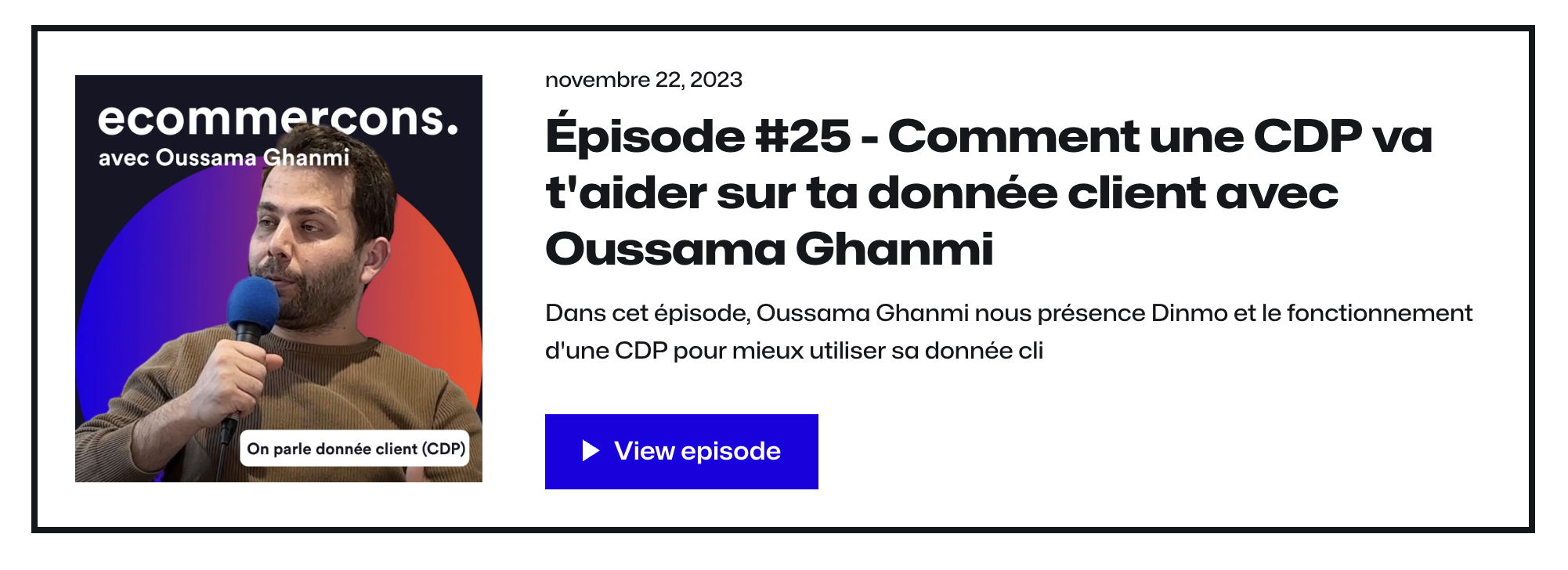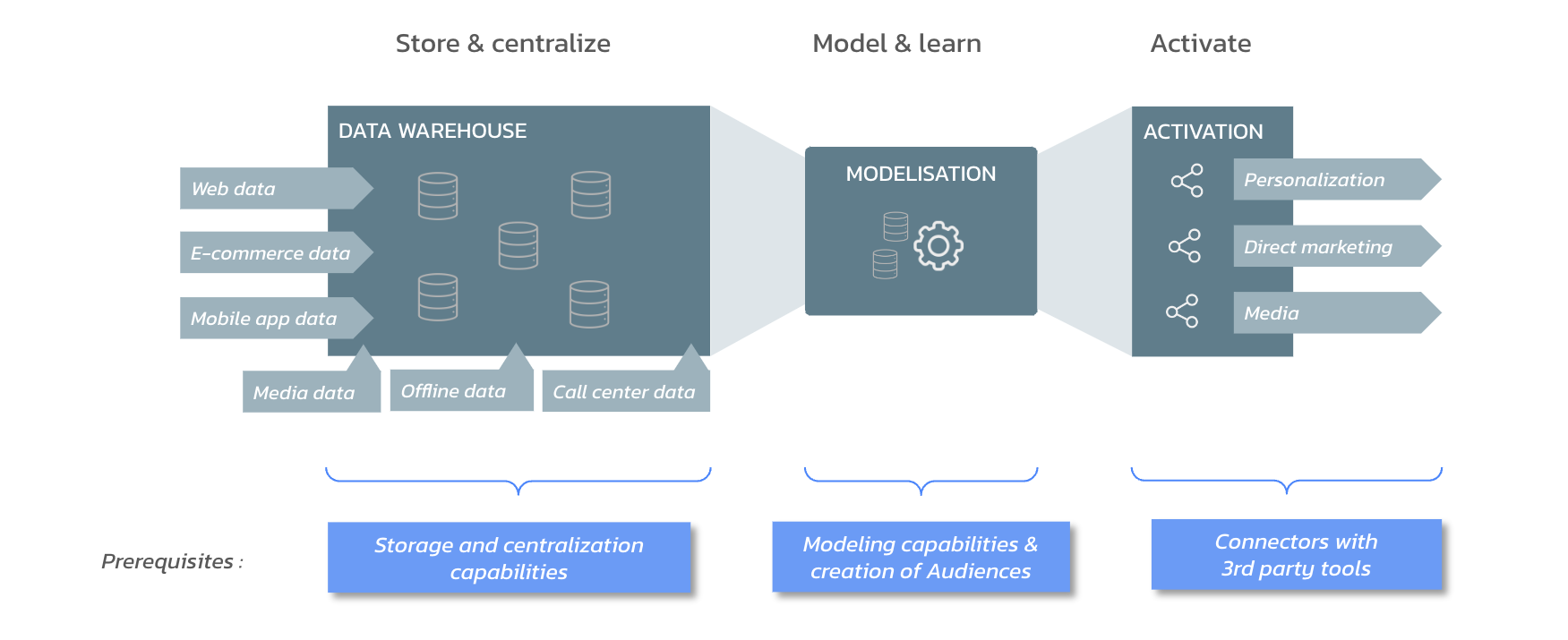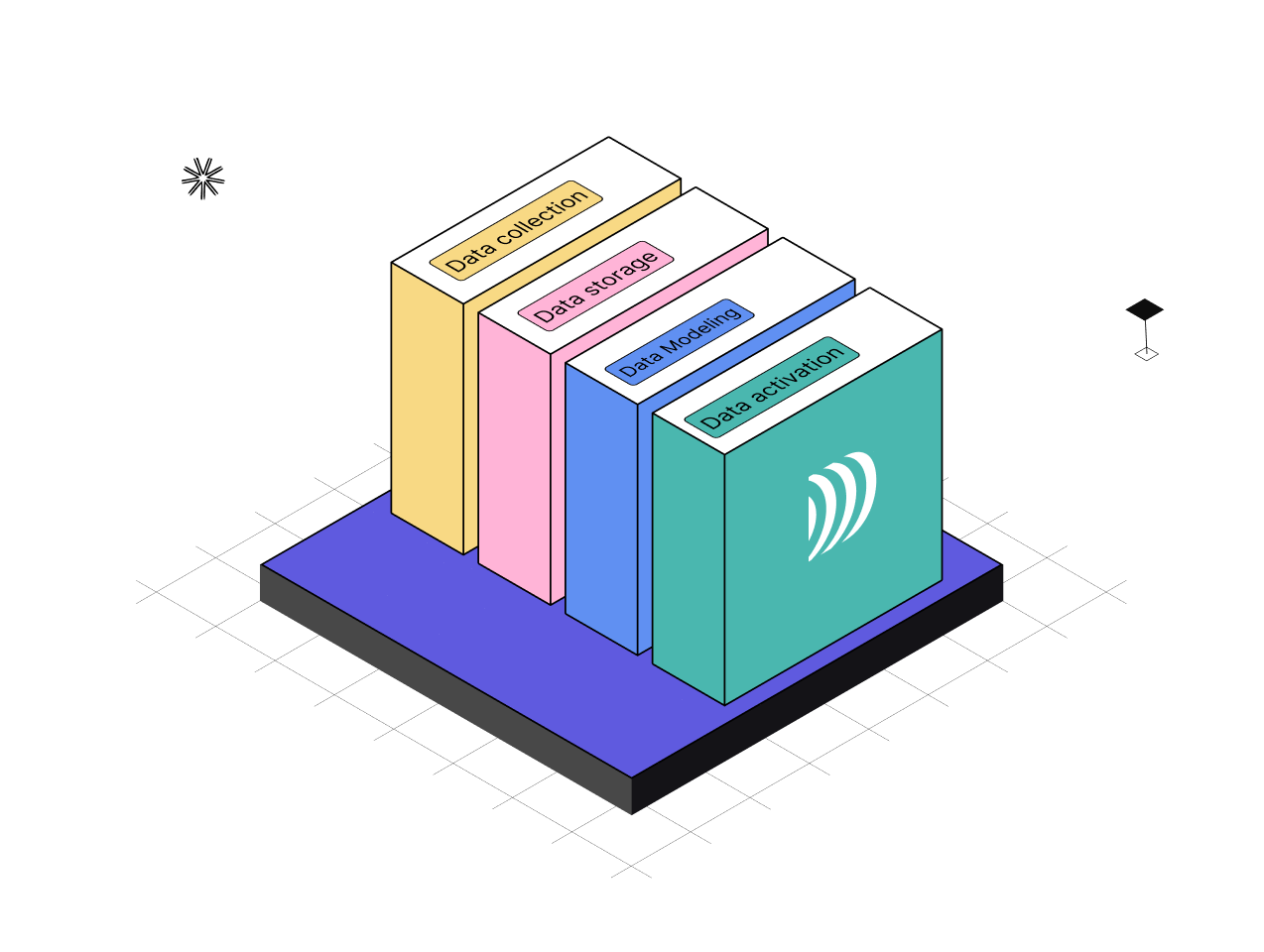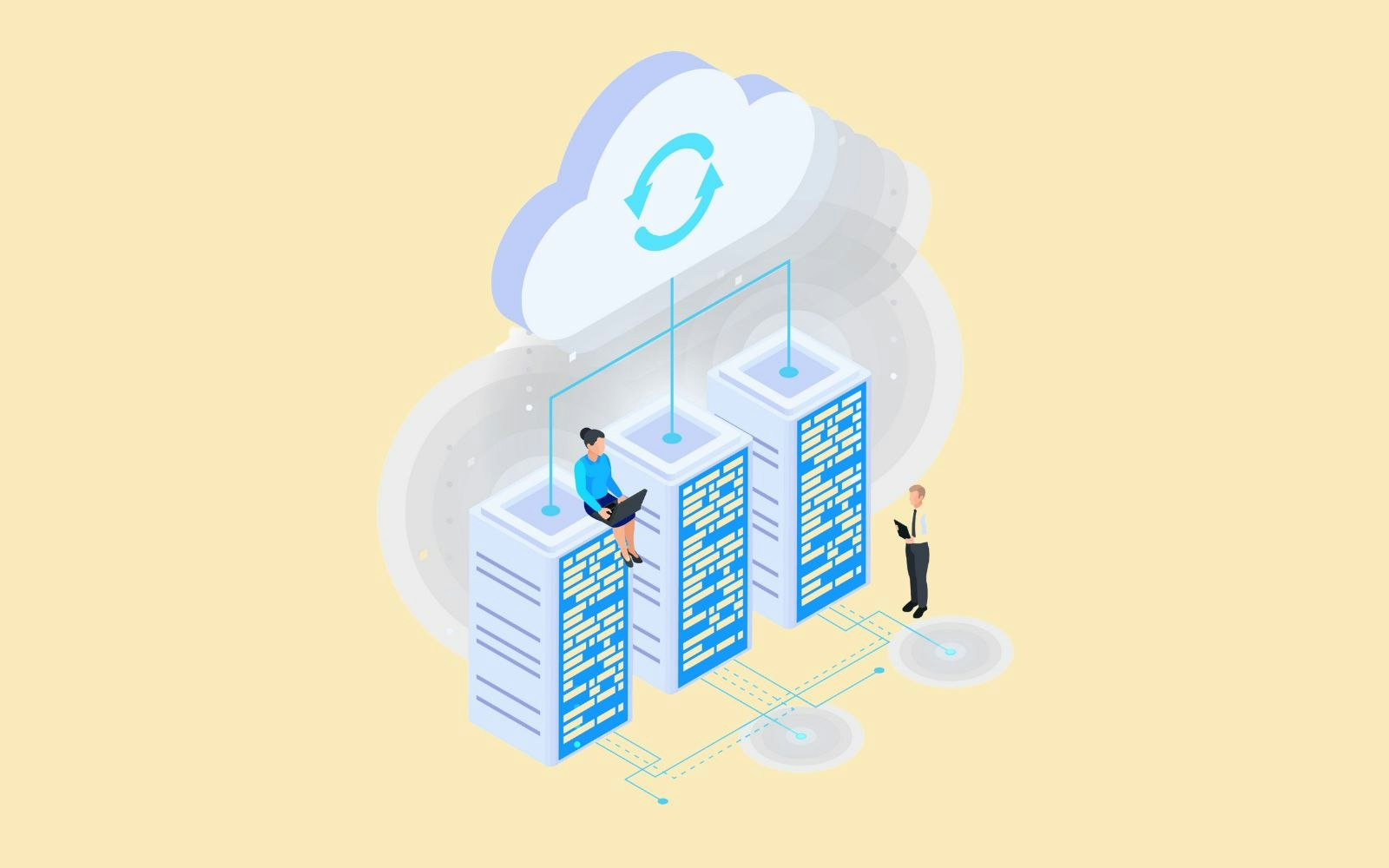
Managing Customer Data with a CDP
4min • Last updated on Dec 15, 2025

Oussama Ghanmi
Founder, CEO, and CPO
🤔 What is a CDP? Do I really need one?
If you're a marketer, I'm sure you've asked yourself this question before. The Customer Data Platforms (CDPs) ecosystem is one of the most complex and ambiguous markets.
The major issue? The significant number of players and the multitude of subjective definitions for existing solutions. A simple research for "Customer Data Platform" generates a dozen sponsored links, but gives little reliable information. Not surprising when you consider that the Cost Per Click for the term “CDP” is over £10.
To clarify the subject, we discussed this topic with Pierre Baptiste, on his podcast "ecommerçons". In this episode, we demystify CDPs:
The importance of customer data as answer to the disappearance of third-party cookies
What a CDP is and how DinMo stands out in this market

⚠️ This article is only a partial summary of our conversation. I strongly encourage you to listen to the entire podcast if you want to learn more. The links to various audio platforms are available at the bottom of the page.
The importance of customer data
In the digital environment, managing customer data has become crucial. Data is now "trendy." Everyone talks about it, everyone collects it, but few really know how to use it wisely. The key idea I want to share is that you have to start by defining your business objectives before deciding what data to collect. Over-collection can even harm performance, for example, by slowing down your e-commerce site.
The customer data collected by a company (known as first-party data) enables various use cases and improves marketing, sales, or support operations.
In this podcast, we particularly focused on personalisation, which enhances the entire customer journey, from acquisition to loyalty.
💡 Let's imagine a cosmetics brand offering an online questionnaire asking for a customer's skin/hair type. This information is essential to later suggest products tailored to the person. It can even be used to enhance customer engagement by providing personalised advice (via email, SMS, etc.).
Note that to start using customer data, you firstly need to be able to reconcile several actions taken by the same person on different contact points. To do, identity resolution is a data management process that reconciles a customer's online and offline behaviour to their identity by gathering different data sets and identifying non-obvious relationships in a deterministic or probabilistic manner.
It's worth noting that personalisation is not limited to online marketing but can also benefit support teams and stores.
What is a CDP?
The central role of a Customer Data Platform is to control client data, providing a comprehensive view of journeys, both online and offline. All CDPs have the same functionalities: centralising customer data, modelling, and activating this data.
Centralisation and unification: Building a "Customer 360" from a single customer view (SCV) — a single source of truth for all your customer touch points. This step is crucial, especially if your systems don't communicate with each other. Unfortunately, this is often the case with e-commerce and store data.
Modelling and activation: The true value of a CDP lies in leveraging data. This involves segmenting and activating these segments, integrating them into platforms such as CRM, advertising platforms, or marketing automation tools.
Relevant data to send includes customer journeys, personal data, and it's wise to enrich them with behavioural information like site interactions, support calls, in-store interactions, etc.

Schematic diagram of a CDP
Activating data by sending it to external platforms greatly improves performance. A typical use case is ensuring that a person is only exposed to a specific campaign, avoiding unnecessary spending. Targeting existing customers in acquisition campaigns increases spending by 25%.
Why adopt a CDP now?
2024 was supposed to mark the end of third-party cookies in Chrome. In reality, their disappearance has been underway for several years, despite Google’s U-turns on the subject.
This news is concerning for marketers as they facilitated the collection and transmission of customer data to marketing platforms. This is why CDPs are now essential, enabling the sending of first-party data while complying with GDPR and ICO regulations.
Any company, regardless of size, can benefit from a CDP. You just need to have an actionable customer/prospect database.
Going further
Data mastery, from centralisation to activation, is essential for any business, especially those with an online presence. This allows understanding key metrics, maximising the efficiency of marketing campaigns, and ensuring a personalised customer experience.
In the podcast, we explore all these topics, provide several use cases (also available in our article on CDP use cases), and address many other questions we commonly hear.
Happy listening!
References
🇫🇷 Only available in French
🔴 Listen on YouTube
🍎 Listen on Apple Podcast
🔵 Listen on Amazon Music
⚫️ Listen on Deezer





















